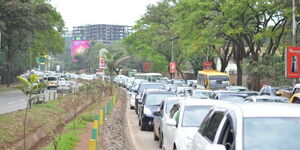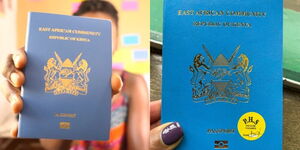On Tuesday, the Office of the Data Protection Commissioner (ODPC) imposed a fine of Ksh1.9 million on Casa Vera Lounge, based in Kilimani, for using a reveler's image without their consent.
The fine, which was also extended to a school in Uthiru, Kiambu County, and a digital credit provider, sent shivers across the nightclub community.
Following the development, a number of clubs rushed to put up disclaimers at their entrances letting revelers know that their images are likely to be taken, some of which may end up on their social media pages.
Cavalli Lounge took a collaborative approach of providing glow wristbands which can be requested by customers who wish not to be photographed. The lounge promised that if a photo is taken erroneously, it will be deleted once the band is spotted.
The Loft, a popular outlet in the city, on the other hand, put up a disclaimer indicating that customers should be informed that images taken within the premises may be used by its management as deemed fit.
"By entering, you waive and release any claims you may have related to the use of recorded media of you at the event including, without limitation, any right to inspect or approve the photo, video or audio recording of you, any claims for invasion of privacy, violation of the right of publicity, defamation, and copyright infringement or for any fees for use of such record media," read the disclaimer in part.
"You understand that all photography, filming and/or recording will be done in reliance on this consent. If you do not agree to the foregoing, please do not enter."
Several other lounges that put up similar notices included included Laviva Lounge, Paris Lounge and Grill as well as Evo Lounge.
Speaking to Kenyans.co.ke, two lawyers, however, explained that whereas the notices serve as disclaimers they were not legally binding documents.
"That notice alone does not become legally binding. Consent has to be obtained individually," stated Deogratius Omondi Ochieng, a lawyer with Omondi, Omeri and Nyapar Advocates
"The way the club should be able to enforce that is to have a document that is straight forward so that when people get into that club, they get to sign it that they are aware that their photos may be taken for the purposes of marketing."
The expert noted that the disclaimer is akin to a bachelor who puts up a disclaimer letting his female companions know that once they get into his house, they will have consented to sexual activity. The disclaimer will be contested in court.
"Getting consent is supposed to be personal, individual and clearly that they will not be compensated for that," he added.
Trevor Akumu Obogi, a Nairobi lawyer, corroborated with Omondi's sentiments noting that an individual's consent needs to be written.
"The consent of the individual needs to be written, signed and authorised by the individual prior to the image been advertised. The individual needs to fully understand the scope," he explained.
"Act 8 of the Constitution speaks on the right to privacy and family life. The document should provide a clear explanation of the scope and period of their image use."
On whether Nairobi clubs will see a decline in their clientele due to the changes, experts noted that it was highly unlikely because the nightlife culture is inherent in Kenyans' daily lives.












